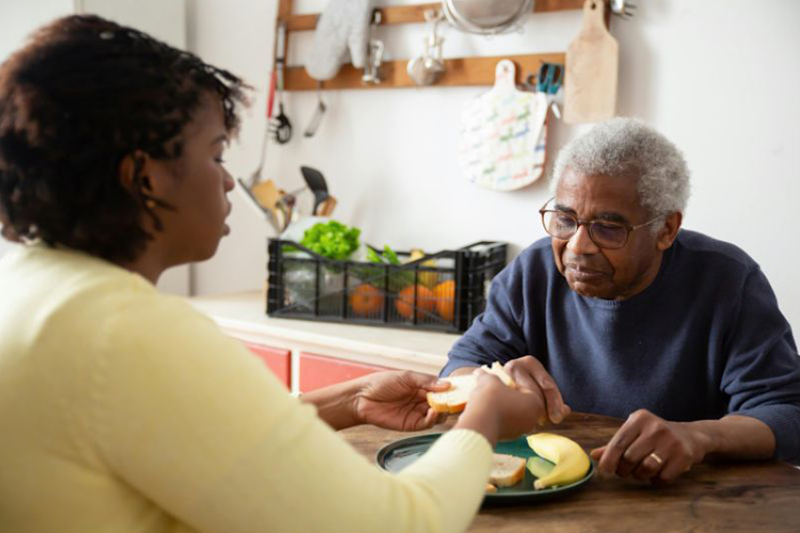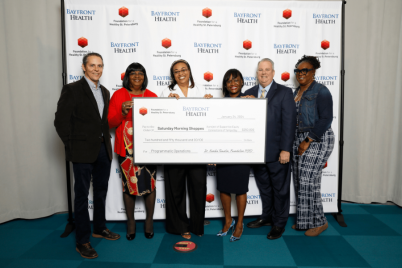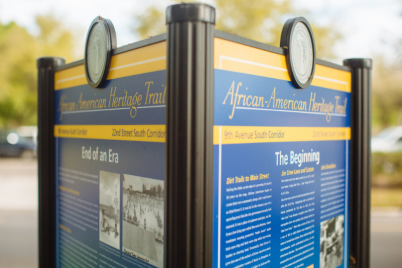Photo by Kampus Production
By Dr. Kanika Tomalin | President and CEO of the Foundation for a Healthy St. Petersburg
The last several months have not been easy. We’ve faced disasters and losses that have tested our resilience. Even in these times of challenge, there is much about which we remain grateful on our journey to a healthier and more equitable community.
In the wake of Hurricanes Helene and Milton, we’re grateful to join with community partners and the City of St. Petersburg to contribute to two funds supporting nonprofits and people impacted by the storms. We’re also grateful to the City and partners like the Pinellas County Urban League and One Community Plan for helping bring to life the innovative Hometown Haulers Program we’re so proud to fund for our community. The program – which represents a collaboration between government, nonprofits, and the private sector – empowered local small businesses to help speed community recovery while sparking economic growth in the process.
Programs like these can help uplift people and organizations, providing relief from burdens that are inequitably shared and shouldered. You can see this in our recent free Catalytic Capacity-Building trainings for nonprofits, and you can see it in our Their Stories, Our Voices Youth Griot Program for high school students, which offers a $1,000 stipend and is currently accepting applications.
Such interventions may not seal every crack in a system or make every injured party whole. When done well, however, they can have lasting impact, helping shift systems and ways of thinking in ways that create lasting change. And that’s what we strive to do at the Foundation for a Healthy St. Petersburg. In times of challenge, philanthropy fills in, offering resources, ideas, and support where it is needed. We often work in the gaps that come with an inequitable system, but we do not work alone.
For our community to thrive, it takes a full ecosystem of support. And we’re so grateful for ours. We’re thankful to our funded partners, who serve and support our community every day with their critical work to advance racially equitable health outcomes. We’re also thankful for the community members and partners who have engaged with and worked alongside us this past year. Maybe you came for a training or learning opportunity. Maybe you invited us to participate in something happening in your space. Maybe we strategized around equity or brainstormed together. For all of this and so much more, we appreciate you.
Earlier this month, Foundation Chief Strategy Officer Lisa Brody and I had the privilege to travel to Nashville, TN, for the Philanthropy Southeast Annual Meeting. While there, I was asked to help facilitate the CEO Forum, a discussion engaging the leaders of our region’s largest foundations serving the common good. As we shared ideas on the role of philanthropy, I left ever more convinced of the power of partnership and collaboration in achieving the types of lasting, systemic change that will guide our city towards improved health and equity for all who are blessed to call St. Petersburg home. Each of us has a role to play and much to contribute. Each of us matters. And each of us benefits if our community is one in which good health enables all people to thrive.
As we head into Thanksgiving, I offer my heartfelt feelings of gratitude and hope. As I’ve shared many times, systems change doesn’t happen overnight, but significant change can happen every day. Thank you for all you’ve done this year to support health and equity in our community.
 Dr. Kanika Tomalin is the President and Chief Executive Officer of the Foundation for a Healthy St. Petersburg. In this role, she leads, directs, and integrates all aspects of the Foundation’s internal and external activities and initiatives. Working closely with the Foundation team, Dr. Tomalin creates and executes the Foundation’s strategic plan—overseeing grantmaking, strategic initiatives, and the Center for Health Equity. She guides the organization as a steward of the community’s resources, consistently reporting back to the community and ensuring decisions and plans of action are mission-aligned and based in equity.
Dr. Kanika Tomalin is the President and Chief Executive Officer of the Foundation for a Healthy St. Petersburg. In this role, she leads, directs, and integrates all aspects of the Foundation’s internal and external activities and initiatives. Working closely with the Foundation team, Dr. Tomalin creates and executes the Foundation’s strategic plan—overseeing grantmaking, strategic initiatives, and the Center for Health Equity. She guides the organization as a steward of the community’s resources, consistently reporting back to the community and ensuring decisions and plans of action are mission-aligned and based in equity.








